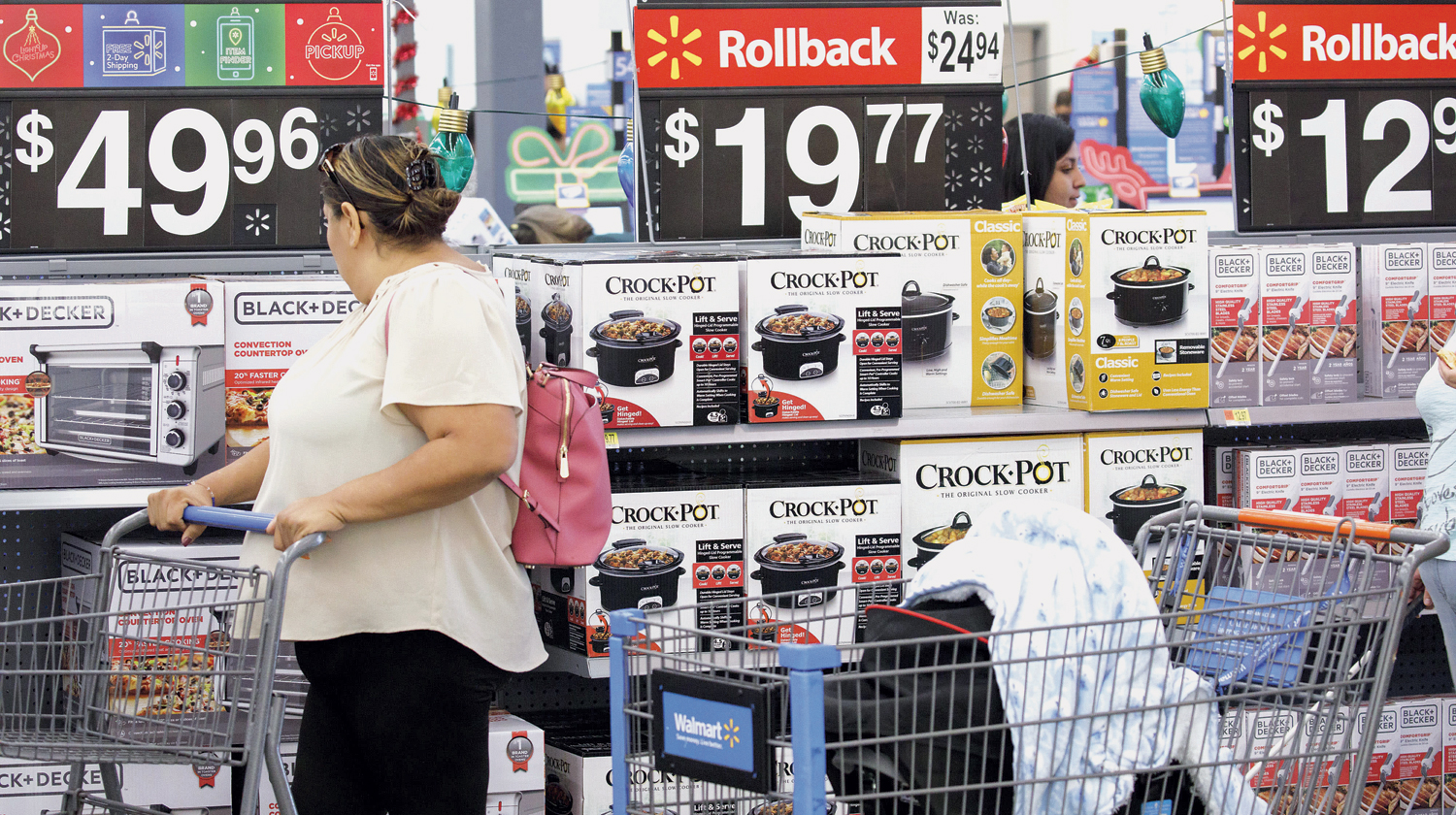

SAN FRANCISCO: US retailers will be front and centre on Wall Street next week as the United States imposes new tariffs on $300 billion worth of Chinese imports, including clothing, televisions and jewellery. The upcoming tariffs on Chinese goods will hit consumers more directly than duties already levied against $250 billion worth of imports. Retailers are scrambling to cut costs and find ways to minimize the damage to their bottom lines, while Wall Street analysts try to identify those best positioned to weather the taxes.
The US government is set impose tariffs on the newest list of products starting September 1, with tariffs on about half of those goods delayed until December 15 in a bid to soften their impact on holiday shoppers. President Donald Trump last week upped the tariffs to 15 per cent from an originally planned 10 per cent.
Trump’s aggressive stance and often mixed signals in his trade war with China have taken a toll across Wall Street in recent weeks, especially on the shares of companies that rely heavily on the world’s second-largest economy.
Wall Street rallied on Thursday after China’s commerce ministry said both sides were discussing the next round of talks. Still, since August 1, when Trump announced the September tariffs, the SPDR S&P Retail ETP has slumped 6 per cent, while the broader S&P 500 has fallen 2 per cent.
The September 1 tariffs include consumer electronics worth $52 billion, including smart speakers, earbuds and televisions, according to the Consumer Technology Association, an industry group.
Tariffs kicking in on December 15 include consumer electronics worth $115 billion. That includes smartphones, laptops and videogame consoles, directly hitting tech companies, including Apple Inc, Microsoft Corp and HP Inc.
Investors are looking for retailers most able to hold prices steady without hurting their margins, or increase prices without hurting demand for their products. They are also looking for companies that rely less on China for their wares.
“We’re leaning in on quality across our Hardline Retail universe, favoring retailers with scale, pricing power in respective categories, less elastic products, and a greater focus on (professional) influenced sales and initiatives,” Wells Fargo Securities analyst Zachary Fadem said.
On that basis, Home Depot Inc and Lowe’s Companies Incare best-positioned to weather the tariffs, relying on China for 10 per cent or less of their cost of goods sold, Fadem wrote.
At the other extreme, Best Buy Co Inc on Thursday gave a lower-than-expected full-year outlook, blaming tariffs and uncertainty about future consumer behaviour, sending its stock down 8 per cent and extending its loss to 17 per cent in August.
Executives on Best Buy’s analyst call said about 60 per cent of the consumer electronics retailer’s cost of goods sold comes from China, and that it was working on lowering that to 40 per cent next year. — Reuters
Oman Observer is now on the WhatsApp channel. Click here



